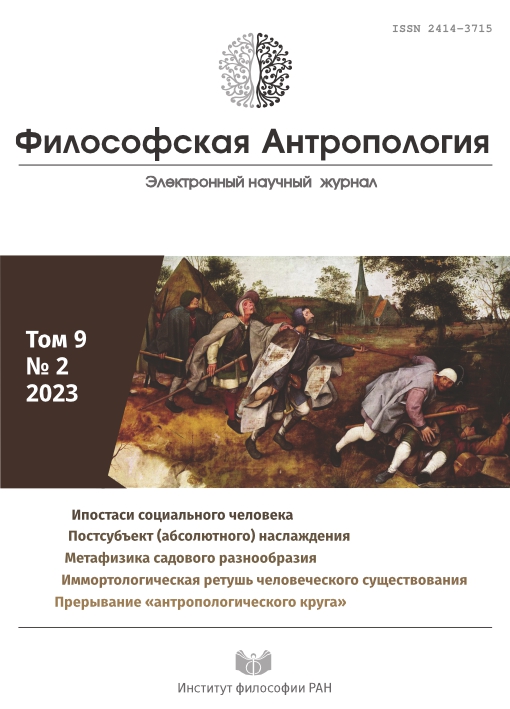Aristotle’s Ethics
DOI:
https://doi.org/10.21146/2414-3715-2023-9-2-250-266Keywords:
Aristotle, Socrates, ethics, happiness (eudaimonía), virtue (areté), fellowship (philía), justice, polis, metriopátheia, bíos theōrētikós (vita contemplativa)Abstract
In ethics and politics, Aristotle is a classic representative of eudaimonism. The summum bonum for human being is happiness (eudaimonía), which consists in the activity of the soul to realize its virtue (areté). Virtues carried out in rational activity are divided into ethical and dianoetic (sc. intellectual). The highest moral ideal, according to Aristotle, is to live a contemplative life (bíos theōrētikós; vita contemplativa), because happiness is a kind of contemplation. The blessed life consists of enjoying contemplation, i.e. in the study of philosophy. Philosophy, the subject of which is the highest principles of existence, is the most speculative of the sciences. Therefore, a life devoted to philosophy is the most perfect.

